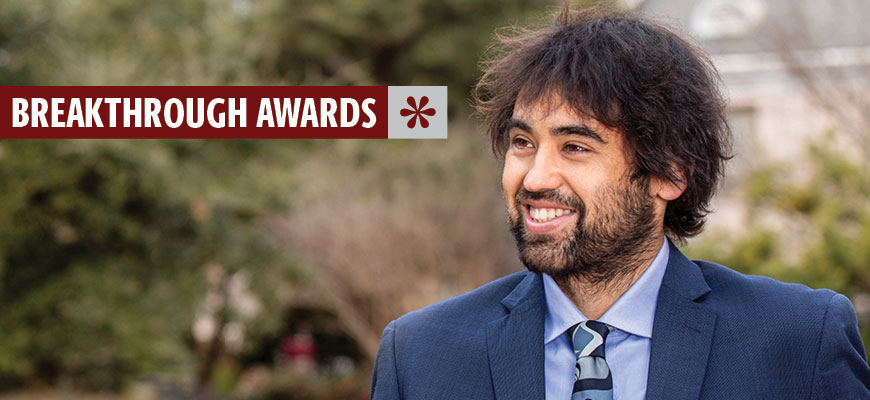
Breakthrough Star: Nick Watanabe
Sport and entertainment management professor studies new ‘attention economy’
Posted on: April 13, 2021; Updated on: April 13, 2021
By Megan Sexton, msexton@mailbox.sc.edu, 803-777-1421
Nick Watanabe was interning for the Chicago Fire Major League Soccer team when he realized everyone being promoted in the organization had earned their master’s degree. He realized if he wanted to move up in the sports field, he needed to go back to school.
Once there, he enjoyed teaching and research and decided to combine the two fields for his career.
Now an associate professor in sport and entertainment management at the University of South Carolina, Watanabe focuses on the economics of sports along with human behavior in the context of sport.
“I take a different or unique approach to looking at it,” Watanabe says. “In our field, we have a lot of people who do survey-based research. I do a lot with secondary data sets. I try to examine through larger, aggregate, big data.”
His research examines the consumer demand for sports products and how the nature of demand has changed in recent years. He looks at how television, digital sites and social media have presented opportunities and threats to the existing economic market structure.
“My research goes beyond the traditional forms of sport market demand to expand understanding of what influences consumer decisions in emerging marketplaces and platforms,” he says. “In examining behaviors on digital sites such as social media, my lineage emphasizes the importance of this new ‘attention economy,’ and how the structure and patterns of consumption have changed in the digital era.”
Recent work has even ventured into the possible impacts of COVID-19, looking at the relationship between the transmission of diseases such as the flu and large-scale events. “We have found evidence that hosting games does lead to an increase in flu cases as well as flu mortality in the area that hosted the game,” he says.
Another current research project looks at the relationship between sport and the environment, examining how sporting events impact pollution in cities. As part of a new subfield called sport ecology, the work studies how sport impacts the environment and how fans are affected by attending sporting events.
“Everyone talks about the positive impact of sport. Our research found NFL games cause a significant increase in in ozone emissions” by examining Environmental Protection Agency air quality findings and matching them with game times and locations.
My research goes beyond the traditional forms of sport market demand to expand understanding of what influences consumer decisions in emerging marketplaces and platforms.
Nick Watanabe
Watanabe has also looked at the reverse side, studying whether fans get turned away because of environmental hazards like air pollution. With soccer in China, he found that pollution did not change consumer behavior; fans were still willing to come to matches even if it meant they were exposed to unhealthy air.
Watanabe is himself a long-time sport fan, particularly soccer. He was born and grew up in Illinois but attended junior high and high school in his father’s native Japan. He returned to the United States for college at the University of Illinois.
“I was really fortunate. I grew up in Japan while they were in the process of bidding for their first World Cup and when they made it for the first time to the World Cup,” he says. “I got caught up in soccer fever.”